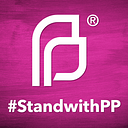Gender Equity Requires Meaningful Recognition of All Our Experiences
By: Planned Parenthood of Greater New York’s Equity & Learning Team
When we recognize women, we must define “womanhood” expansively. Women’s History — and our contemporary experience — is a narrative shared by us all, including trans women and femme-identified folk, who are often marginalized by the very movement they advance.
This month we will find ourselves surrounded by stories commemorating women’s accomplishments and triumphs as we celebrate National Women’s History Month, corresponding with International Women’s Day. In the U.S., this year’s theme is “Women Providing Healing, Promoting Hope” — a tribute to frontline workers and caregivers who have protected so many during the pandemic. While this is the time to pay homage to our contributions and the textured timeline of the wider women’s movement, meaningful recognition hinges on honest conversations about the varied plights we individually and collectively face.
When we recognize women, we must define “womanhood” expansively. Women’s History — and our contemporary experience — is a narrative shared by us all, including trans women and femme-identified folk, who are often marginalized by the very movement they advance.
When we recognize women, we must name the violence wielded against them. We must face the reality of the relentless brutality that women and femmes experience — specifically women in the AAPI community. We must admit that it isn’t new, that it’s rooted in white supremacist ideals responsible for perpetuating racist and misogynistic views about Asian communities, and that it manifests in many forms including domestic worker abuse and sexual exploitation.
When we recognize women, we must believe their pain. We must believe Black women, femmes, and non-binary folk when they recall their experiences within the sexual and reproductive health care system — a system that produces and drives inequities for Black women at a much higher rate than white women.
When we recognize women, we must respect and protect their personal bodily autonomy. Abortion remains under constant attack as we see the imposition of more restrictions, eclipsing what should be our inalienable human and constitutional right to complete control over our bodies and health care decisions. While this universal issue has wide-reaching implications, it disproportionately affects Black, Latinx, and Indigenous birthing people who are living at the intersections of oppression. Now more than ever we need to fight for, protect, and uphold the fundamental right to abortion access. We cannot let politicians dictate our health care options, under the paternalistic guise of helping us while subjecting us to yet more irreparable harm.
This month is a time to celebrate the strength, resilience, beauty, and perseverance of the world’s women as we are confronted with oppression perpetuated interpersonally, by institutions, and by systems at the intersections of our identities. In response, many women provide hope and healing through cross-racial solidarity movements that demand justice, equity, and visibility for ALL women. We call on each other and our accomplices to confront such oppression and act with us in solidarity so that women aren’t required to garner the strength to survive. Our hope is to thrive.
